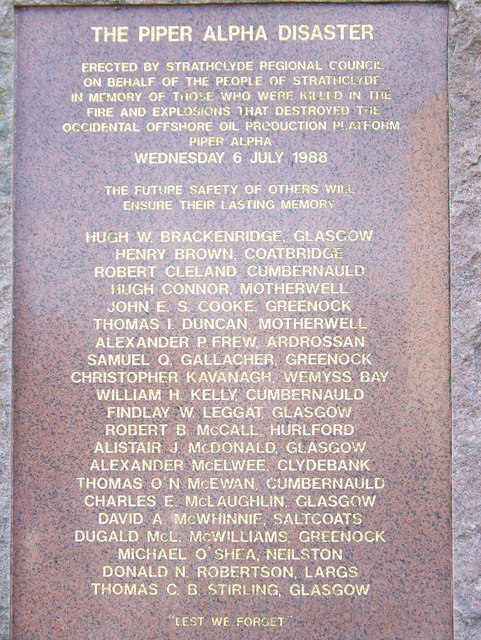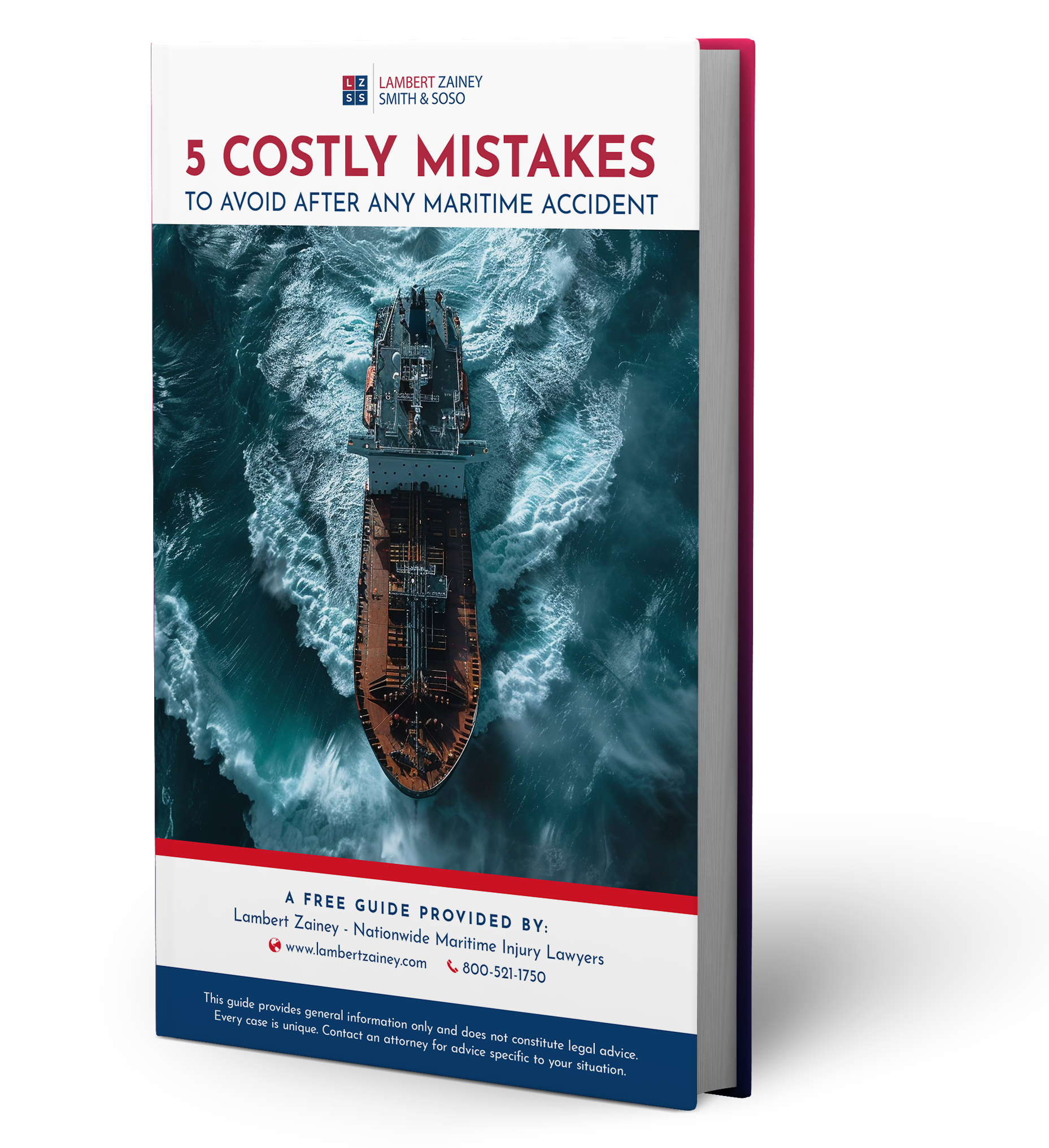July marked the 30th anniversary of the Piper Alpha explosion and fire, the worst oil rig disaster in history. While safety aboard offshore rigs have improved since then, some experts warn that more needs to be done to prevent another tragedy like Piper Alpha.

The Piper Alpha Disaster
Located 120 miles northeast of Aberdeen, Scotland, Piper Alpha was one of the largest offshore platforms in the world and responsible for about 10 percent of oil and gas production in the North Sea. On July 6, 1988, there was a miscommunication between the day and night shift workers. The day crew had been performing maintenance work on a condensate pump but hadn’t finished the job by the time their shift was over. They failed to inform the night crew that they hadn’t completed the work and that the pump shouldn’t be switched on. So, the night crew started the pump, creating a condensate leak.
At around 9:55 p.m., the gas leaking from that faulty condensate pump ignited and exploded. This explosion triggered a series of explosions that engulfed the Piper Alpha in fire. The heat from the flames was so intense that rescue craft were unable to reach the platform.
That evening, 167 offshore workers lost their lives; some of the bodies were never recovered. Only 61 workers survived the disaster — by taking a 175 ft. plunge from the platform’s helicopter deck into the seas below. Thirty years later, Piper Alpha still remains the worst disaster in the history of the oil and gas industry in terms of lives lost.
The Real Causes of the Piper Alpha Disaster
The subsequent investigation criticized workers for failing to act but found no evidence that the workers had ever received the proper hazard awareness training prior to the disaster. Many believe it was this lack of safety training on the part of offshore workers and complacency when it comes to implementing preventative safety measures by management that were the true causes of the Piper Alpha disaster.
Has Safety Training Improved in the Three Decades since Piper Alpha?
Pat Rafferty, the Scottish secretary of the trade union Unite, doesn’t believe the offshore oil industry has learned enough from the disaster and fears that things are only getting worse.
Speaking to Offshore Technology.com, Rafferty said the inquiry into Piper Alpha “should have led to significant changes in the oil and gas sector that would protect workers in the future and make the industry safer.
“Instead, 30 years on, we have witnessed an industry that is driven increasingly by cost reductions, with corners and jobs being cut to save money. The accident was caused by cost-driven decisions. And when costs become more important than safety, Piper Alpha shows that the result can be catastrophic.”
Blame the Worker?
Jake Molloy, the regional organizer of the National Union of Rail, Maritime and Transport Workers (RMT), echoed Rafferty, warning that “all the signs” of fatal disasters such as Piper Alpha, Brent Bravo and Deepwater Horizon are reappearing.
Speaking at a recent “Reflections on Piper Alpha” conference, Molloy accused offshore oil companies of blaming workers after such tragedies occur, instead of implementing the necessary measures to prevent them.
“This is becoming the culture of this industry again,” Molloy said at the conference, speaking on the lack of change in the industry.
“This ability to stop the job is good, if you’re educated enough, familiar enough with the systems you’re working in. If not, stopping the job is completely worthless.
“All the signs that we saw with Piper, all the signs we saw with Shell in 2003, they’re all coming to the surface again and this is the safety net – ‘you didn’t stop the job, you’ve got the right to stop the job, why didn’t you stop the job?’”
Get Our FREE Guide to Protect Your Claim
What you do after an accident is critical. Insurance companies will try to get you to make mistakes that can hurt your claim. Our free guide can help you avoid these traps.
Download our complimentary guide: “5 Costly Mistakes to Avoid After Any Maritime Accident” to arm yourself with the knowledge you need to protect your rights.
Offshore Oil and Gas Companies Have an Obligation to Maintain a Safe Workplace
Companies that have offshore oil and gas operations have a duty to provide their employees and contractors with a safe work environment. This includes providing them with the training and resources they need to make the right decisions when it comes to their personal safety, the safety of their co-workers and the safety of the offshore structure they’re working on.
Are you an offshore worker injured in an on-the-job accident that was caused because somebody failed to follow company safety protocols or because the company lacked proper safety procedures? You have a right under maritime law to seek compensation for the damages you’ve suffered. Lambert Zainey is here to protect those rights. Contact Lambert Zainey today to schedule a free consultation with one of our highly experienced offshore injury attorneys. Let us help you get the justice you deserve.
July marked the 30th anniversary of the Piper Alpha explosion and fire, the worst oil rig disaster in history. While safety aboard offshore rigs have improved since then, some experts warn that more needs to be done to prevent another tragedy like Piper Alpha.

The Piper Alpha Disaster
Located 120 miles northeast of Aberdeen, Scotland, Piper Alpha was one of the largest offshore platforms in the world and responsible for about 10 percent of oil and gas production in the North Sea. On July 6, 1988, there was a miscommunication between the day and night shift workers. The day crew had been performing maintenance work on a condensate pump but hadn’t finished the job by the time their shift was over. They failed to inform the night crew that they hadn’t completed the work and that the pump shouldn’t be switched on. So, the night crew started the pump, creating a condensate leak.
At around 9:55 p.m., the gas leaking from that faulty condensate pump ignited and exploded. This explosion triggered a series of explosions that engulfed the Piper Alpha in fire. The heat from the flames was so intense that rescue craft were unable to reach the platform.
That evening, 167 offshore workers lost their lives; some of the bodies were never recovered. Only 61 workers survived the disaster — by taking a 175 ft. plunge from the platform’s helicopter deck into the seas below. Thirty years later, Piper Alpha still remains the worst disaster in the history of the oil and gas industry in terms of lives lost.
The Real Causes of the Piper Alpha Disaster
The subsequent investigation criticized workers for failing to act but found no evidence that the workers had ever received the proper hazard awareness training prior to the disaster. Many believe it was this lack of safety training on the part of offshore workers and complacency when it comes to implementing preventative safety measures by management that were the true causes of the Piper Alpha disaster.
Has Safety Training Improved in the Three Decades since Piper Alpha?
Pat Rafferty, the Scottish secretary of the trade union Unite, doesn’t believe the offshore oil industry has learned enough from the disaster and fears that things are only getting worse.
Speaking to Offshore Technology.com, Rafferty said the inquiry into Piper Alpha “should have led to significant changes in the oil and gas sector that would protect workers in the future and make the industry safer.
“Instead, 30 years on, we have witnessed an industry that is driven increasingly by cost reductions, with corners and jobs being cut to save money. The accident was caused by cost-driven decisions. And when costs become more important than safety, Piper Alpha shows that the result can be catastrophic.”
Blame the Worker?
Jake Molloy, the regional organizer of the National Union of Rail, Maritime and Transport Workers (RMT), echoed Rafferty, warning that “all the signs” of fatal disasters such as Piper Alpha, Brent Bravo and Deepwater Horizon are reappearing.
Speaking at a recent “Reflections on Piper Alpha” conference, Molloy accused offshore oil companies of blaming workers after such tragedies occur, instead of implementing the necessary measures to prevent them.
“This is becoming the culture of this industry again,” Molloy said at the conference, speaking on the lack of change in the industry.
“This ability to stop the job is good, if you’re educated enough, familiar enough with the systems you’re working in. If not, stopping the job is completely worthless.
“All the signs that we saw with Piper, all the signs we saw with Shell in 2003, they’re all coming to the surface again and this is the safety net – ‘you didn’t stop the job, you’ve got the right to stop the job, why didn’t you stop the job?’”
Get Our FREE Guide to Protect Your Claim
What you do after an accident is critical. Insurance companies will try to get you to make mistakes that can hurt your claim. Our free guide can help you avoid these traps.
Download our complimentary guide: “5 Costly Mistakes to Avoid After Any Maritime Accident” to arm yourself with the knowledge you need to protect your rights.
Offshore Oil and Gas Companies Have an Obligation to Maintain a Safe Workplace
Companies that have offshore oil and gas operations have a duty to provide their employees and contractors with a safe work environment. This includes providing them with the training and resources they need to make the right decisions when it comes to their personal safety, the safety of their co-workers and the safety of the offshore structure they’re working on.
Are you an offshore worker injured in an on-the-job accident that was caused because somebody failed to follow company safety protocols or because the company lacked proper safety procedures? You have a right under maritime law to seek compensation for the damages you’ve suffered. Lambert Zainey is here to protect those rights. Contact Lambert Zainey today to schedule a free consultation with one of our highly experienced offshore injury attorneys. Let us help you get the justice you deserve.








